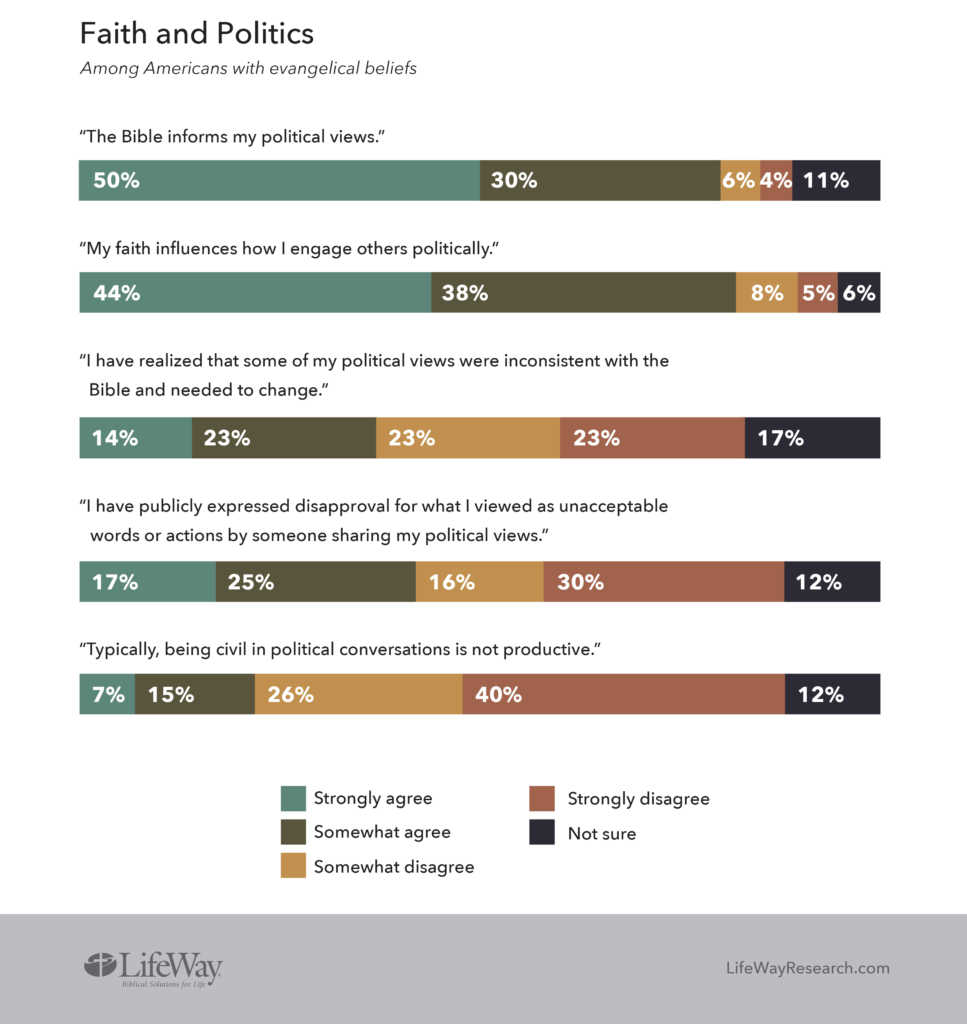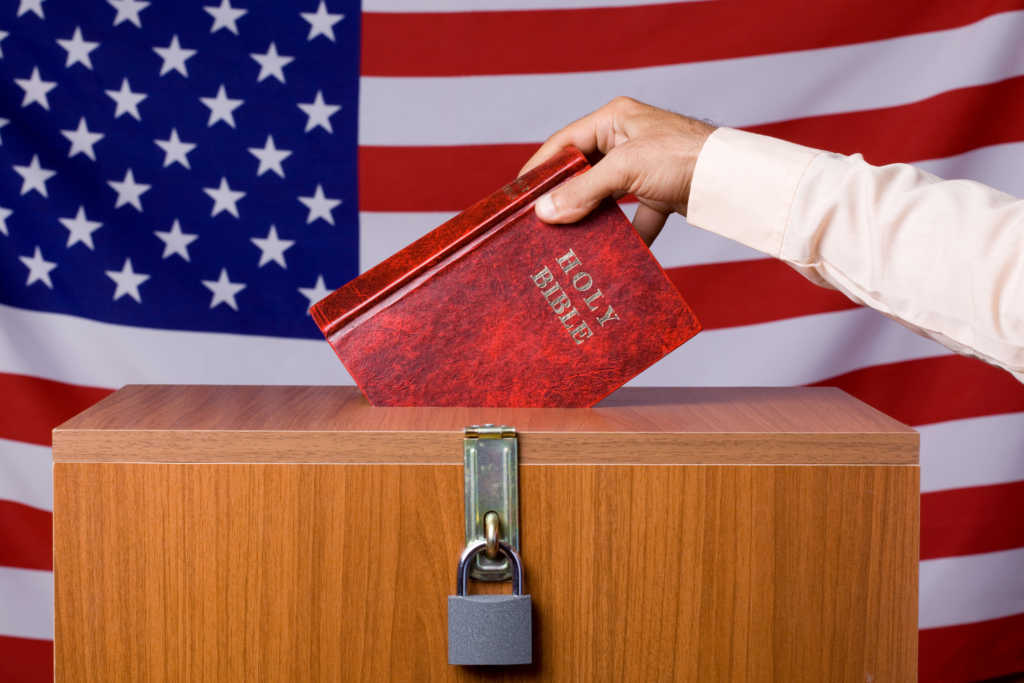The 2020 election cycle ramping up, and a study from LifeWay Research reveals the major issues that evangelicals are focused on as they look to select candidates.
The study, conducted last November, polled 1,317 evangelicals to determine top policy issues impacting 2020 voting decisions.
On policy
When asked what their top policy concerns are, 51 percent say healthcare, 46 percent point to the economy, 40 percent said national security, and 39 percent are looking at immigration.
These issues were more popular than things like religious liberty (33%), abortion (29%), providing for the less fortunate (22%), and finding a solution to racial division (21%).
While abortion polled relatively low at 29 percent, compared to healthcare at 51 percent, the study shows the topic is highly important in choosing a candidate.
“Only half of evangelicals (51%) say they will only support a candidate who wants to make abortion illegal,” the study highlights.
While this policy issue is crucial to half of voting evangelicals, significantly more value a candidate who is committed to fighting racial injustice (67%).
Surprisingly, only 8 in 10 of those surveyed say that their faith influences how they engage with others politically, while 2 in 3 “believe being civil in political conversations is productive.”
Russel Moore, pastor and the President of the Ethics and Religious Liberty Commission, points out that the results from the study show how divided evangelicals are in America.
“The results of this polling project were occasionally encouraging, frequently surprising and in some cases very much indicting,” Moore says, according to LifeWay. “What this polling clearly shows is that there are forces driving the church apart from one another. That shouldn’t surprise us. But it should convict us.”

On the media
The LifeWay Research study also surveyed the way that the group of evangelicals consume news.
The study shows evangelicals consume news via television (74%), websites (44%), social media (38%), radio (33%), print newspapers or magazines (27%), YouTube (19%), and blogs (7%).
Furthermore, evangelicals prefer to consume local news (59%), Fox News (47%), NBC (40%) or CBS (38%). Only a little over a quarter watch CNN (27%), while only 13 percent watch MSNBC and 8 percent CNBC.
According to the study, “around 3 in 5 (62%) say social media has a negative impact on the respectfulness of public debates,” which may be a possible indicator of why only 38% consume news through that medium.
On civility
The study shows that 66 percent of American evangelicals believe civil political conversations are productive, while 22 percent disagree, and 12 percent are without opinion.
While many Americans believe that civil conversations about politics are productive, the study also shows that many take opposing opinions quite personally.
According to the study, 58 percent of evangelicals say they believe those with differing opinions have good intentions, while 54 percent said that when they disagree with someone it’s taken as a “personal attack.”
Scott McConnell, the executive director of LifeWay Research, points out that it’s important for people with different beliefs to engage in polite discourse in order to practice civility.
“You can’t practice demonstrating civility by dialoguing only with those who share your views,” McConnel says. “The respect needed for civility can start with valuing and engaging people who don’t share your views.”
In 2017, LifeWay Research conducted a study that shows different political beliefs often lead teenagers to leave a church once they become adults.
“Evangelical pastors must recognize that political diversity frequently is present within churches,” says McConnell. “If civility across these differences is not actively fostered, it can hurt the mission of the church. This has already been evident as many young adults point to political differences as a reason they stop attending church.”
Russell Moore hopes the polling results will work as a wakeup call to evangelical Christians, and show them that unification is needed more than ever.
“Biblical courage means being willing to stand alone, against a crowd,” he said. “But biblical unity means those who are in Christ should never be forced to stand alone or against those who also bear the name of Christ.”



